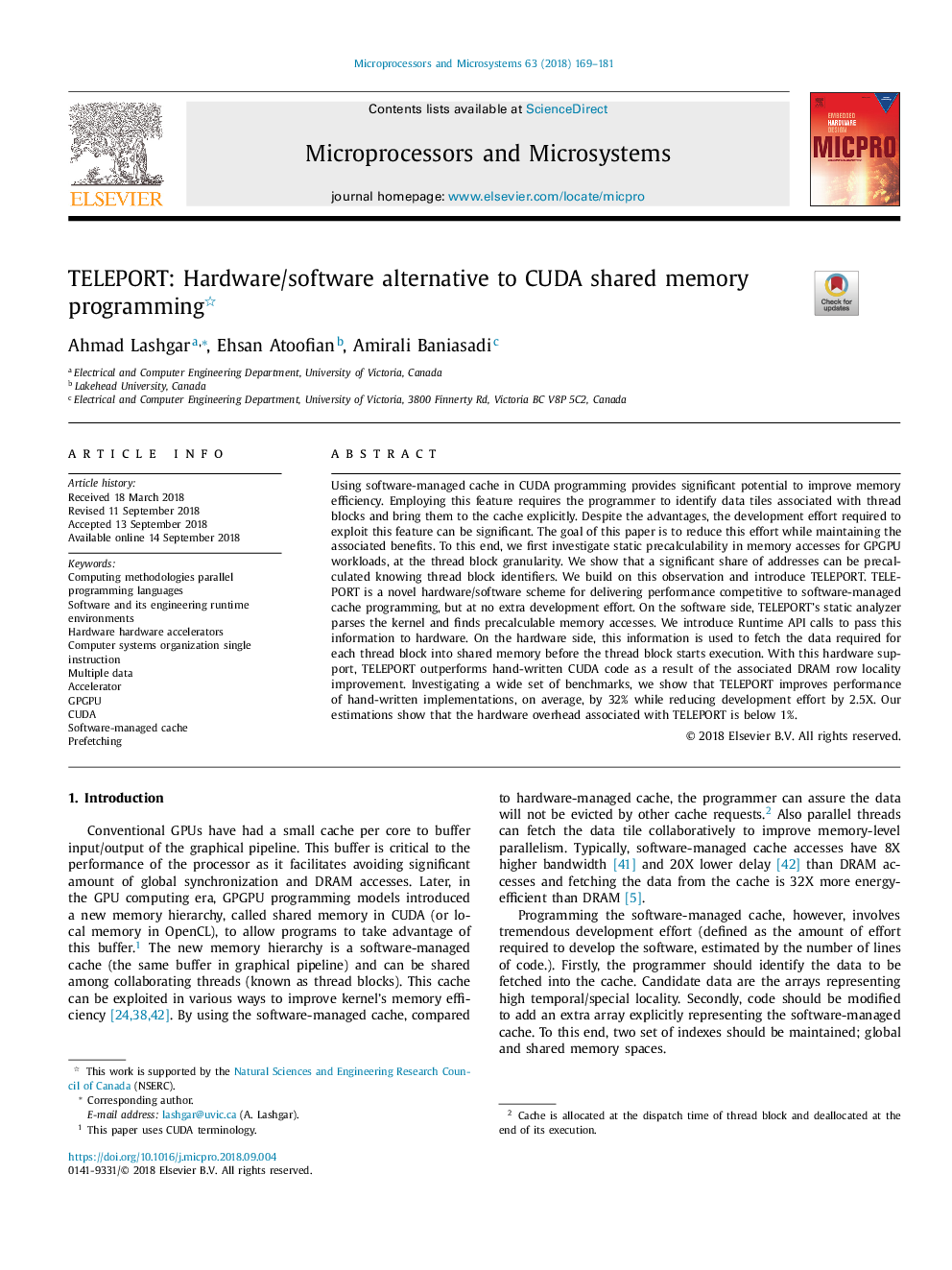| Article ID | Journal | Published Year | Pages | File Type |
|---|---|---|---|---|
| 10127142 | Microprocessors and Microsystems | 2018 | 13 Pages |
Abstract
Using software-managed cache in CUDA programming provides significant potential to improve memory efficiency. Employing this feature requires the programmer to identify data tiles associated with thread blocks and bring them to the cache explicitly. Despite the advantages, the development effort required to exploit this feature can be significant. The goal of this paper is to reduce this effort while maintaining the associated benefits. To this end, we first investigate static precalculability in memory accesses for GPGPU workloads, at the thread block granularity. We show that a significant share of addresses can be precalculated knowing thread block identifiers. We build on this observation and introduce TELEPORT. TELEPORT is a novel hardware/software scheme for delivering performance competitive to software-managed cache programming, but at no extra development effort. On the software side, TELEPORT's static analyzer parses the kernel and finds precalculable memory accesses. We introduce Runtime API calls to pass this information to hardware. On the hardware side, this information is used to fetch the data required for each thread block into shared memory before the thread block starts execution. With this hardware support, TELEPORT outperforms hand-written CUDA code as a result of the associated DRAM row locality improvement. Investigating a wide set of benchmarks, we show that TELEPORT improves performance of hand-written implementations, on average, by 32% while reducing development effort by 2.5X. Our estimations show that the hardware overhead associated with TELEPORT is below 1%.
Keywords
Related Topics
Physical Sciences and Engineering
Computer Science
Computer Networks and Communications
Authors
Ahmad Lashgar, Ehsan Atoofian, Amirali Baniasadi,
